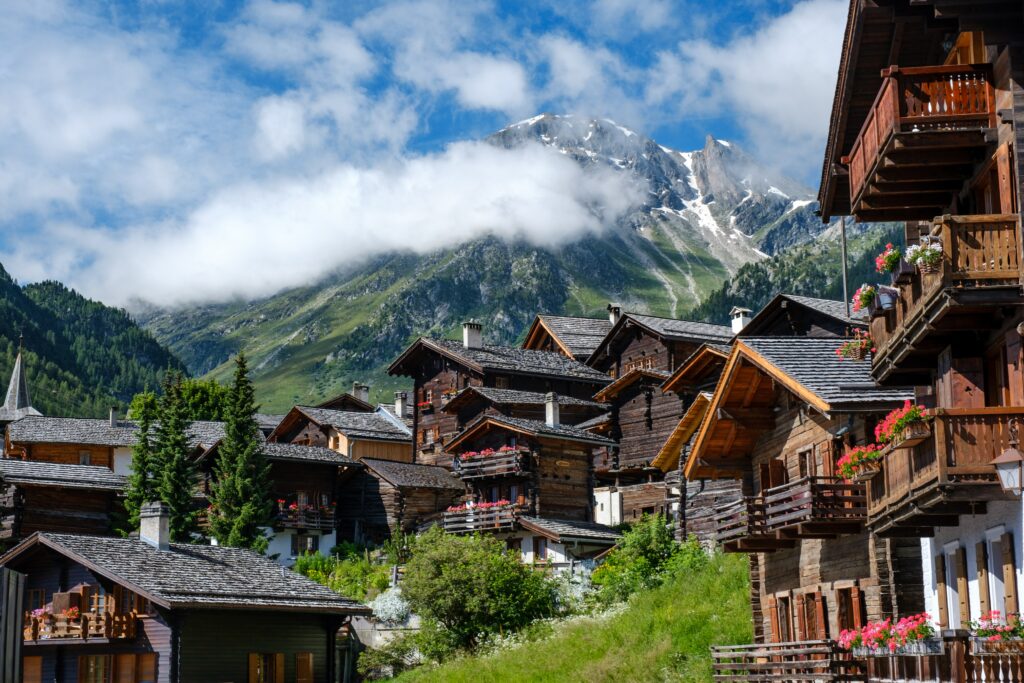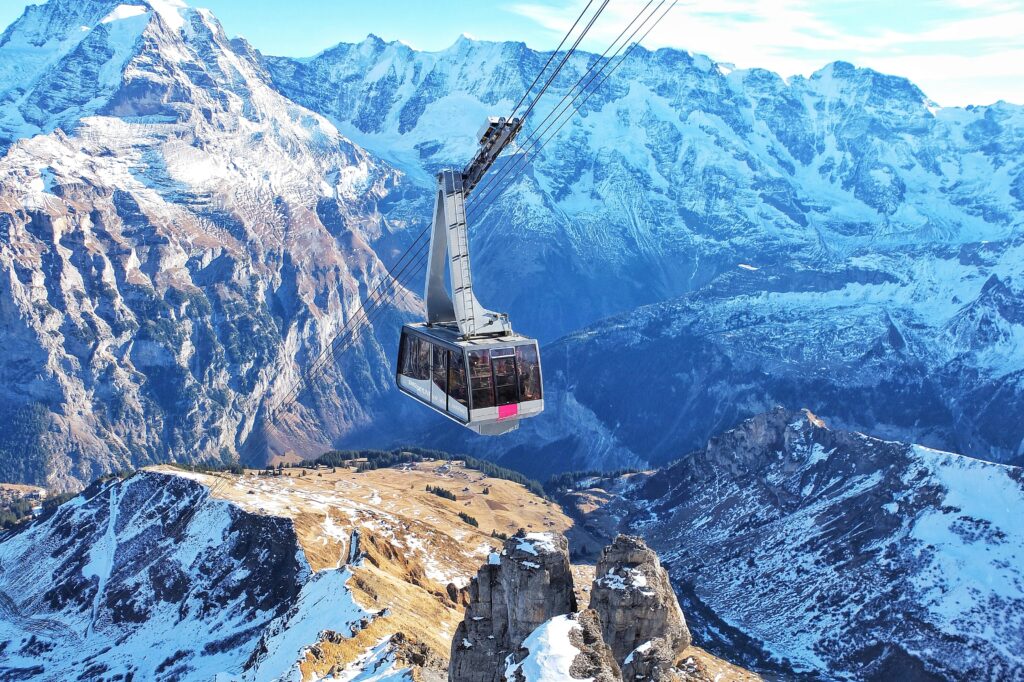lun, Fév 20th 2023

While most expats end up in Zurich and Geneva, postcard-perfect Swiss villages are always close by.
Expats living in Switzerland enjoy an excellent work-life balance, high-quality education, beautiful landscapes, top-notch healthcare, and high salaries. It is one of the safest countries in the world, where residents benefit from a high degree of peace and personal security. It’s no wonder that skilled foreigners move to this multi-cultural mecca.
Still, the country is one of the most expensive in the world and assimilating into local life can be tricky to navigate. Plus, expats from non-European Union/Schengen Area countries encounter more bureaucratic challenges to obtain work visas, permanent residency status, and citizenship than their EU counterparts. (Once again, Switzerland ranks #1 for expats. Read more.)
Switzerland has one of the highest percentages of foreign residents in its population, most of whom are predominantly Europeans. These 2 million foreigners account for nearly 25% of the nation’s 8.66 million population. More than 80% of the foreign population living in Switzerland comes from neighboring countries Germany, Italy, and, to a lesser extent, France.
By the start of the 20th century, the expansion of the Swiss railway networks ushered in the first wave of migrants to Switzerland. Before then, immigration had come almost exclusively from European countries.
The burgeoning post-World War II economic growth also resulted in an uptick in employment opportunities for expats. Between 1951 and 1970, Switzerland experienced a considerable influx of migrants. The inflow plateaued in the 1970s and 1980s, but has increased again in the past 30 years.
Furthermore, the majority of workers moving into Switzerland hailed from Spain and Italy until the end of the 1970s, when their own national economies began to improve. Switzerland then began to attract workers from other countries, such as Portugal and the former Yugoslavia.

Geneva attracts expats who are interested in working for large pharmaceutical companies such as Roche and Novartis, and non-governmental organizations such as the Red Cross and the United Nations.
With the implementation of the Schengen Agreement in 2008, people from 26 European countries were able to move freely without passport and internal border control checks. This, in turn, attracted thousands of workers into Switzerland’s growing economy.
It’s worth noting that the profile of immigrants has evolved over time. In the past, migrants were predominantly unskilled manual laborers, whereas today, many EU nationals working in Switzerland have completed higher education. (What is the Swiss secret to their impressive longevity? Read more.)
Despite the high percentage of foreigners living in Switzerland, the country has more stringent citizenship criteria compared to other countries. Foreigners born in Switzerland are not automatically granted Swiss nationality. About 20% of the foreign population was born in Switzerland, and among the foreigners born outside of the country, 44% have permanently resided in Switzerland for over ten years.
“My son was born in Geneva, and we have lived in Switzerland for eight years. The quality of life is so good here that my wife and I are considering going for Swiss citizenship in two years,” says expat Marc Iskander, a former P&G researcher.
But the path to Swiss citizenship entails a lengthy process – foreigners can qualify after living in Switzerland continuously for ten years or by marrying a Swiss national. Other citizenship requirements include knowledge of one of the four official Swiss languages and mandatory military service for all able-bodied male adults.

The incredible network of public transportation alone is reason to consider moving to Switzerland.
Famous expats
An increasing number of the rich and famous have abandoned the Hollywood Hills and flocked to the Swiss mountains, where the toxic celebrity culture of paparazzi is non-existent. Luminary figures such as Shania Twain, Tina Turner, Phil Collins, and legendary superstars of the past, Audrey Hepburn and Coco Chanel, have called Switzerland home.
Of course, privacy is not the primary reason why celebrities and esteemed magnates are drawn here. Switzerland’s advantageous lump sum taxation for wealthy foreigners have attracted many business tycoons, aristocrats, and celebrities. With the exception of Liechtenstein, it is unique to Europe. (Why are the Swiss some of the happiest people in the world? Read more.)
Some of the lesser-known expats have contributed more to Switzerland’s economy and culture than their more famous counterparts.
For example, Lebanese businessman Nicolas Hayek is credited with saving the Swiss watch industry in the 1980s from Japanese digital watch competition. Hayek standardized automation and distribution in the fragmented watch industry and co-created the less-expensive, but fashion-forward Swatch. And all of this happened in Switzerland because Hayek fell in love with a Swiss au pair while she was working in Lebanon.
Unsurprisingly, Switzerland’s wealthiest resident is not Swiss. He is Ingvar Kamprad, the Swedish founder of Ikea, who has been living in Switzerland since the 1970s.

Zurich draws in expats looking for opportunities in the financial and banking sectors.
Switzerland’s highly skilled workforce and strong national economy have attracted qualified foreigners in droves despite the Swiss government’s rigid controls on the number of foreigners working in the country. In recent years, the Swiss government reduced the number of work visas issued to foreigners from outside the European Free Trade Association (EFTA, which includes Switzerland, Iceland, Liechtenstein, and Norway) and the EU.
Immigration officials have also increased restrictions on application prerequisites, such as increased salary requirements and more stringent extension rules. Only applicants who meet the conditions will be able to get a Swiss work visa. Despite these added restrictions, the number of highly skilled foreigners working in leading sectors such as pharmaceuticals and banking in the Swiss labor market increased by more than 9%.

The access to mountains and winter sports is a big draw for expats. Some say it is the best skiing in the world.
Who needs a work visa?
The rules for employment in Switzerland depend on whether or not you are an EU/EFTA citizen. Switzerland grants EU/EFTA citizens free entry into Switzerland to look for work without a visa. EU/EFTA citizens can stay for three months while seeking employment opportunities. Once a job is found, the EU/ETFA citizen must secure a Swiss residence permit. One applies through the local canton’s immigration office and will receive a reply anywhere from two weeks to one year.
For non-EU/EFTA nationals, Swiss work visas must be obtained before moving to Switzerland. This means that non-EU/EFTA nationals must first have a job offer in place from a Swiss employer before applying for a work visa. Once a job is secured, a Swiss employer will apply for a work permit which allows their employee to work in Switzerland. With Ukrainians traveling westward from the war, Switzerland this year launched an emergency “S” permit for refugees to work and live in Switzerland for one year.

Although one of the most expensive places to live, can you really put a price on access to Switzerland’s nature?
Prerequisites to applying for Swiss citizenship through naturalization
Expats who reside in Switzerland with a C-permit for ten years and meet the residency requirements may apply for Swiss citizenship. Expats between the ages of 8 and 18 can apply to be Swiss citizens after five years, provided they meet the other requirements. These requirements include a C-permit and proof of language proficiency from an accredited Swiss language school.
Applications for citizenship through naturalization take place at three levels: federal, cantonal, and communal. Generally, the application costs over CHF 1000 and can take over a year to complete because of the multi-stage procedure. Requirements at the national level are the same for all applicants, but vary substantially between individual cantons and communes.
For instance, some cantons or communes may allow short durations of time spent residing outside Switzerland within the residency requirement period, while others may not. Some may also require different conditions for EU and EFTA citizens. (Read about your canton’s requirements for obtaining Swiss citizenship here.)
Some applicants must participate in an interview and take a verbal or written naturalization test. Others will merely wait for the application decision by the communal decision-makers. (For further details on cantonal and communal requirements, read more here.)
“I need to first brush up on my French and study for the written test and interview, but I have two years to prepare,” says Iskander. Despite the restrictions and bureaucratic hurdles that expats must jump through to acquire one of its coveted work visas, Switzerland is truly a country that runs on a vibrant international community of skilled expats.
Cet article peut être librement partagé et réimprimé, à condition qu'il renvoie clairement à l'article original.
